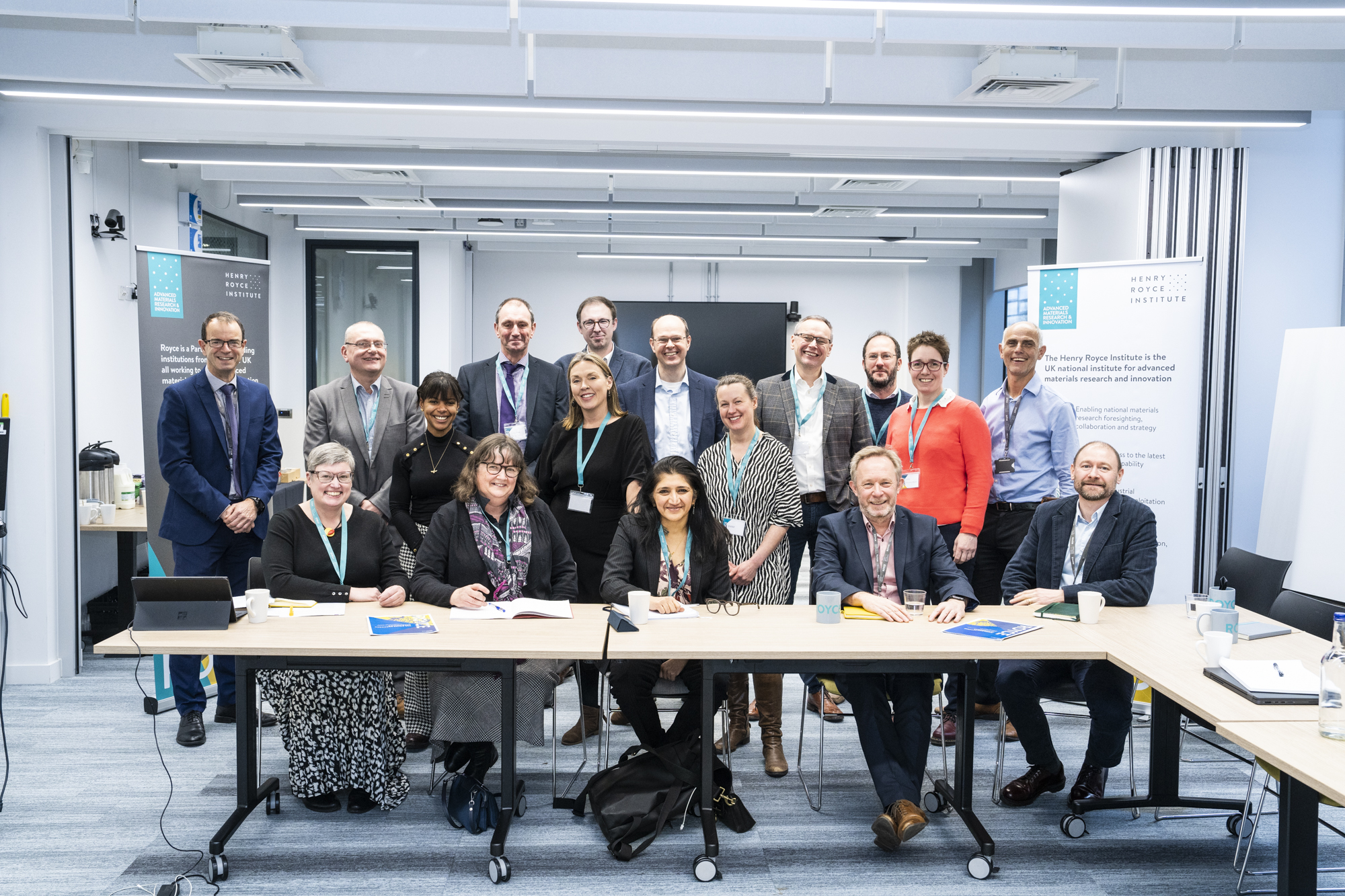Talks centre on Royce’s role in catalysing industrial collaboration and exploitation of materials research.
Mike Biddle, the Executive Director for Net Zero of Innovate UK and Professor Charlotte Deane, Executive Chair of the Engineering and Physical Sciences Research Council (EPSRC) today visited the Henry Royce Institute Hub Building in Manchester, to see first-hand how the Institute is helping the UK to support a world-leading advanced materials sector in the UK. Innovation stands as a cornerstone for the UK’s growth, and the collaborative efforts of partners within the innovation ecosystem play a key role in propelling the nation towards global excellence.
The day began with Royce CEO Professor David Knowles setting out Royce’s four strand mission and providing an update on the newly developing National Materials Innovation Strategy. This was followed by short presentations from several SMEs who have engaged with Royce on materials innovation projects through a range of schemes and access routes. These included: Ceres Power, Hardide Coatings, Sigma Lithium, Flex-sea, Symbiotex and Ecobelt.
The morning finished with a wide discussion around the Foundation Industry Sustainability Consortium (FISC), a project funded by Innovate UK’s Transforming the Foundation Industries Challenge in which Royce is a core partner, and on a number of regional technology initiatives in Greater Manchester linked to advanced materials, including IDManchester and Atom Valley.
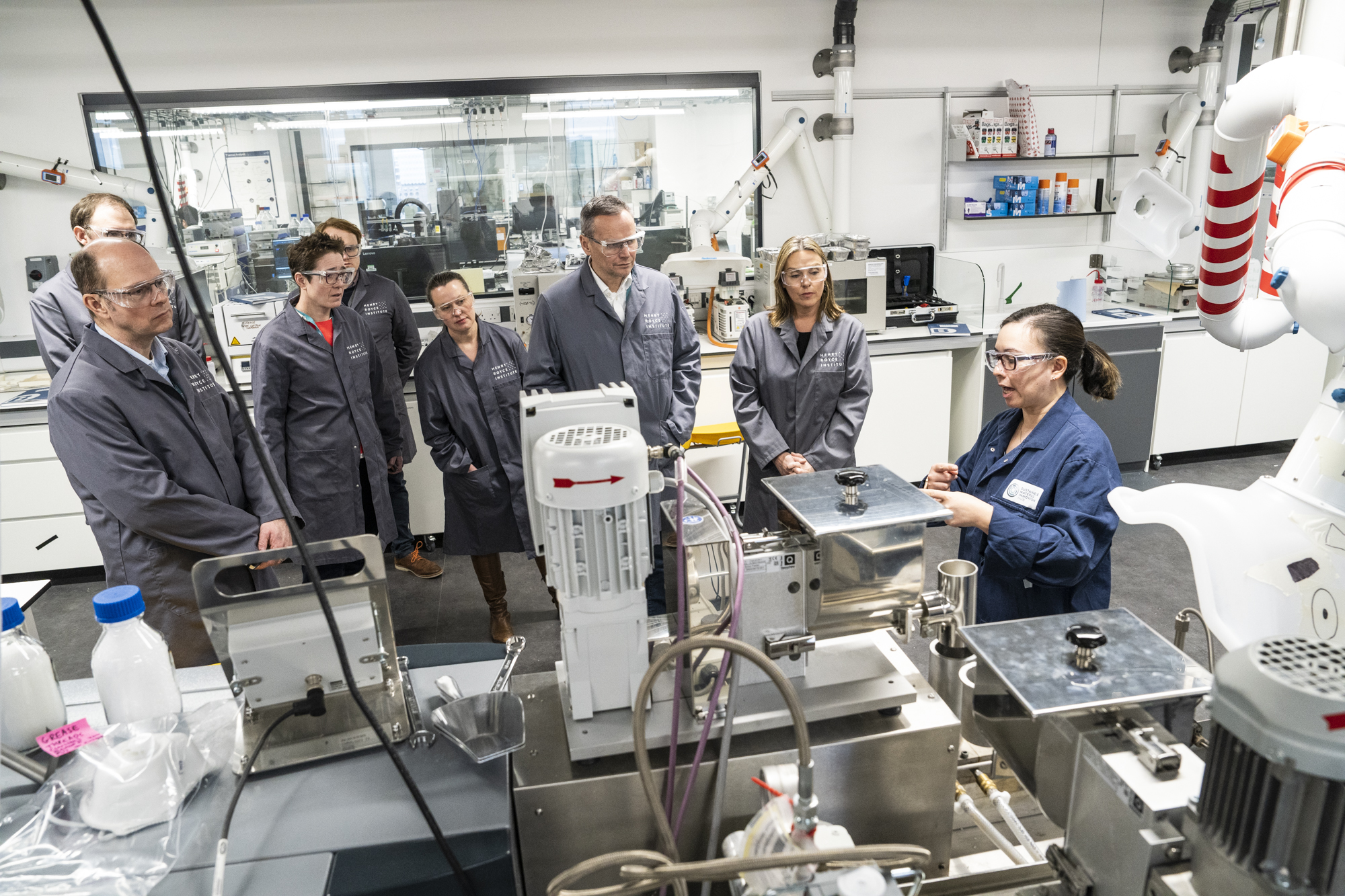
Mike and Charlotte then toured some of the Royce Hub’s cutting-edge facilities including the Sustainable Materials Innovation Hub, a collaboration centre within the Royce Hub which provides advice, assessment and innovation services to SMEs to support technology translation around sustainable polymers. The group met with Industrial Fellows, Application Scientists and Research Technical Professionals in Royce Hub who are working at the front line with both industry and academia. The tour party were able to see first-hand how Royce supports the implementation and development of game-changing materials with applications across sectors as varied as manufacturing, energy, transport and health.
Discussions on Royce’s long-term role
In the afternoon, discussion centred on Royce’s role in linking industry and academia to support the acceleration of technology translation. Royce offers an increasing range of opportunities to undertake research and accelerate knowledge at its facilities across UK – ranging from access schemes and collaboration through “sprint projects” alongside the opportunity to work with industry facing Fellows.
It was highlighted that companies of all sizes can now access technical support through Royce for new product development and innovation sprint projects. These sprint projects often run over a short period and are supported by a nationally distributed team of hands-on Application Scientists with versatile research backgrounds.
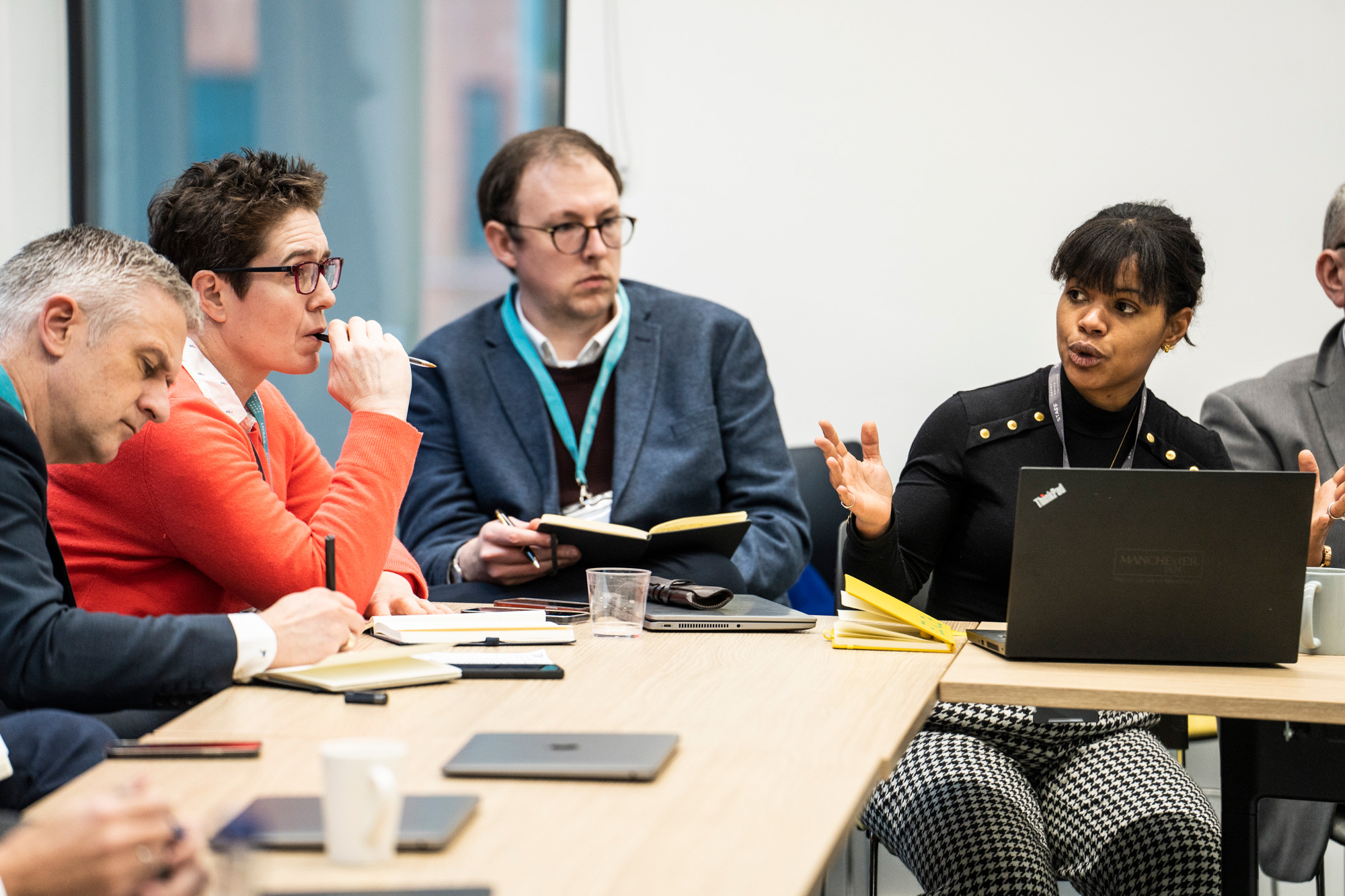
In the last year Royce has also appointed several Industry Fellows who work to foster academic and industrial engagement. These new roles are aimed at accelerating impact from breakthrough academic ideas into manufacturing research across the UK’s industrial base. Royce is keen to grow this experienced cohort.
The challenge of scale up remains a concern for materials innovation and a major focus for the afternoon centered around enhancing the opportunities for industry which will come from strengthening the links and translation pathways across research organisations which complement Royce’s capabilities.
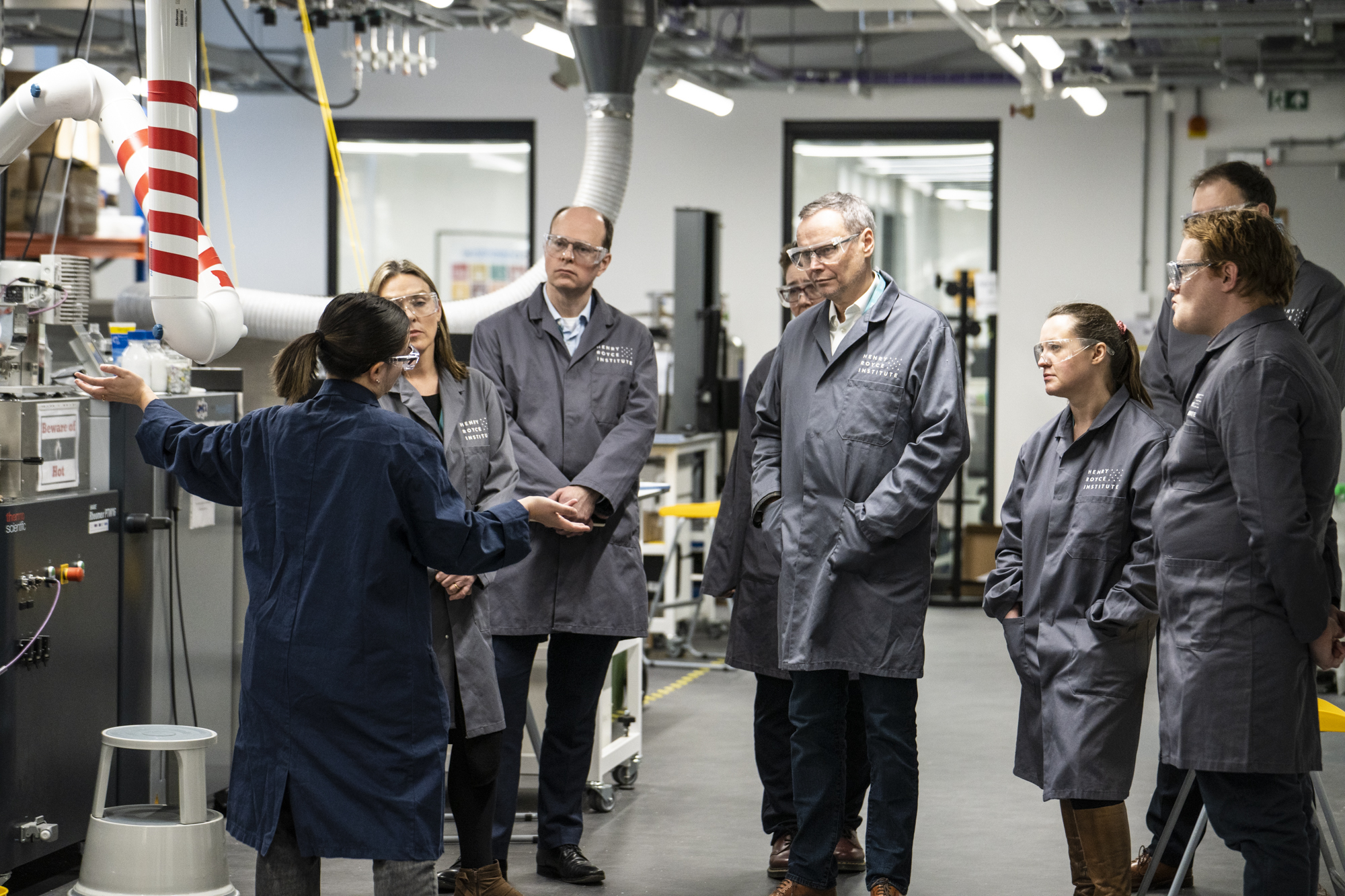
Mike Biddle, Executive Director for Net Zero of Innovate UK said:
“As the UK’s innovation agency, Innovate UK supports innovative businesses on their growth journeys. The Innovate UK team and I are pleased to visit the Royce Institute today to discuss how to catalyse closer collaboration between academic research and industry to improve sustainability and help meet our net zero targets and propel economic growth.
“Materials are at the heart many of the challenges we face as a society at a national and international level and the Royce Institute has an important role to play in the innovation ecosystem to accelerate innovation.”
Professor Charlotte Deane, Executive Chair of EPSRC said:
“We’re proud to have supported Royce since its inception in 2016. Now, more than ever, our drive for a more sustainable use of resources is dependent on having the right materials at our disposal.
“As a research and innovation hub, Royce aims to forge strong ties between academia and industry, helping to translate materials innovation to enable the new technologies required for the prosperous and sustainable UK.”
Professor David Knowles, Royce CEO said:
“We were delighted to welcome Mike and Charlotte to the Royce Hub today, it was fantastic to be able to showcase the research, development and innovation we are supporting through programmes such as our Access Schemes and Industrial Collaboration Programme.
“It was also hugely beneficial to discuss with both Mike and Charlotte our common purpose, and what can be achieved through Royce and the wider RTO network in ensuring the UK is a global leader in materials innovation. We have much evidence around the difficulty of commercialising new innovations – not least the hurdles faced in scaling-up.
“Royce remains committed to support industry and the whole materials research community, working with UKRI, local and national government to develop initiatives and programmes which substantially accelerate collaboration, address national need and raise industry investment in research.”
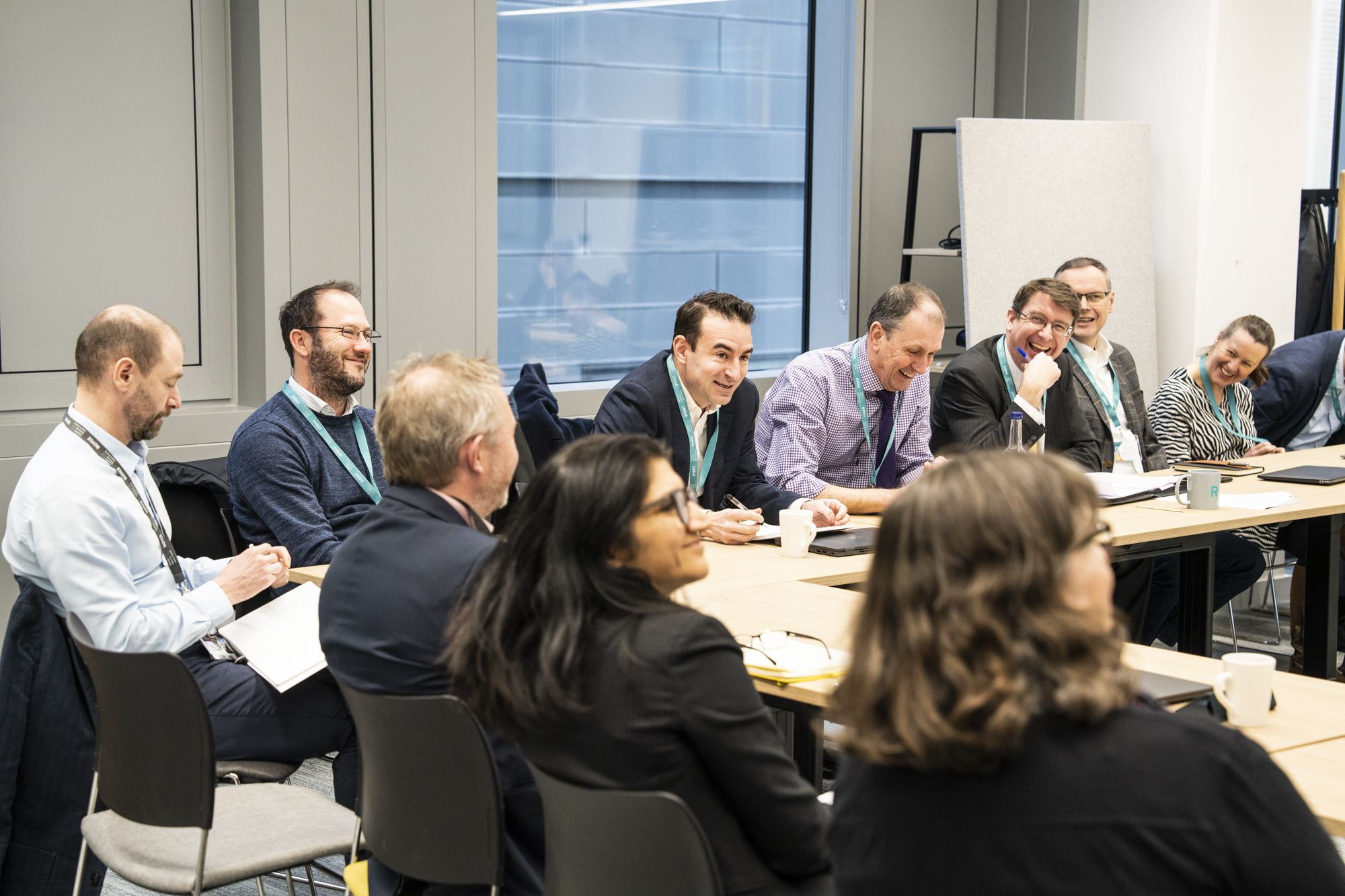
All parties were confident that with continued Government support, Royce, working with partners across the Catapults and RTO network, can continue to support innovative businesses by ensuring that their efforts to commercialise new discoveries or product developments are not held back due a lack of expertise and capability in materials science.
This increasingly also includes aspects such as regulation, standards, skills and finance – a strong message that is coming though from the industry participants in the workshops Royce is running to develop the National Materials Innovation Strategy. Actions and recommendations around such underpinning enablers will form part of the Strategy output.

